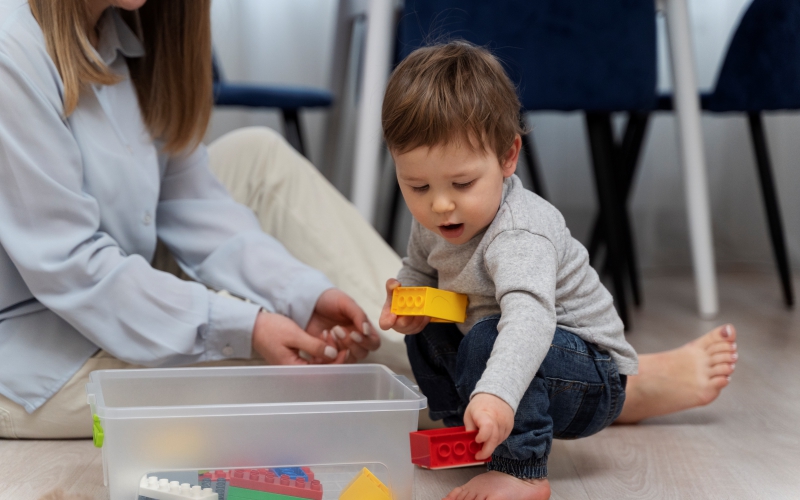
Behaviour and development of a toddler

Toddler Psychology: Understanding Your Child's Emotions and Needs
A toddler is defined as the "one who toddles," thus as soon as your child stands up unassisted, even hesitantly, they qualifies as a toddler. The majority of specialists place the toddler years between 1 and 2 years of age. Many new abilities, including walking, talking, using the restroom, socializing with peers, and developing independence, can be learned during these years of transition.
Disciplining Your Toddler: Effective Techniques and Strategies
The first step includes abilities like the first walk, the first smile, and the first "bye-bye" wave. Toddlers develop these skills in their play, learning, speaking, behavior, and other movements
Your child moves around more and becomes more aware and curious of their environment as part of the second step. In this stage, toddlers become more independent, start to act defiantly, identify themselves in mirrors or photographs, and start to imitate the actions of others, particularly adults and older kids. Additionally, toddlers are able to recognize the names of well-known people and objects, put simple words and phrases together, and follow simple commands.
What should I do if my toddler's development concerns me?
It's important to have a pediatrician who is looking for developmental issues as early as 3 or 6 months of age if you have concerns that your toddler isn't developing the skills they should be or if they’re slower than other children their age. Early diagnosis and intervention are essential for preventing more serious issues with some developmental delays and illnesses. Also make sure to find a nearby early intervention facility to assess your child's gross motor development, fine motor development, speech and hearing ability, etc.
How can I stop my toddler from acting out?
You need patience while dealing with a toddler. You can not lash out at your toddler and expect them to obey you happily. Indirectly, they are telling you that you have no control over them when they engage in "poor" behaviors like tantrums, backtalk, attitude, and refusal to cooperate. Spending more time with your child and teaching them new abilities can make a toddler feel more connected and in charge, which can reduce misbehavior.
Related Blogs

Understanding Different Types of Vaginal Birth Delivery
Read More
How to Treat and Prevent Brown Discharge
Read More
Endometriosis Understanding, Diagnosing, and Managing the Condition
Read More
Emotional Support During IVF Treatment
Read More
Understanding Gestational Diabetes: Insights from Dr Shruthi Kalagara
Read More
Urinary Tract Infection (UTI) in Pregnancy
Read More
Early Pregnancy Care for New Pregnant Women: Expert Advice | Motherhood Hospitals
Read More
Body Positivity Tips Post C Section (Cesarean Delivery)
Read More
Vaginoplasty: Procedure, Cost, Risks & Benefits, Recovery
Read More
The Digital Dilemma: Exploring the Medical Implications of Technology on Child Development
Read MoreRequest A Call Back
Leave a Comment:
View Comments
Previous
Next
HELLO,
Stay update don our latest packages, offer, news, new launches, and more. Enter your email to subscribe to our news letter


 Toll Free Number
Toll Free Number








No comment yet, add your voice below!